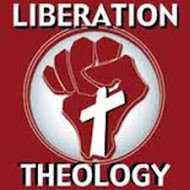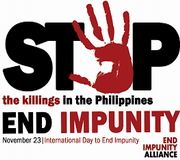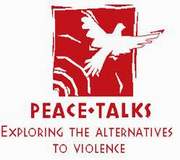
From the Website of Mindanao News
Article links: http://www.mindanews.com/peace-process/2017/07/btc-to-submit-draft-bbl-to-president-duterte-on-july-18 BTC to submit draft BBL to President Duterte on July 18DAVAO CITY (MindaNews / 05 July) — The Bangsamoro Transition Commission (BTC) will submit its draft Bangsamoro Basic Law (BBL) to President Rodrigo Duterte in Malacanang on July 18, a month and two days after completing it and six days before the President delivers his second State of the Nation Address (SONA) where he is expected to certify the bill as urgent.BTC chair Ghazali Jaafar said he does not know if the President will still review the draft as he had repeatedly said he would, or hand it over immediately to Senate President Aquilino Pimentel III and House Speaker Pantaleon Alvarez on the same day it is submitted to him in Malacanang. “That we don’t know. Depende na sa President yan” (That depends on the President), Jaafar, concurrent 1st Vice Chair of the Moro Islamic Liberation Front (MILF) told MindaNews in a text message. The submission of the draft BBL was initially set for June 28 but Secretary Jesus Dureza, Presidential Adviser on the Peace Process told MindaNews on June 23 that it was reset because Pimentel and Alvarez would not be available by then. The plan, he said then, was “after PRRD receives it (draft BBL), he hands it over immediately to Congress.” “We should not commit the mistakes of the past. We should learn from them,” Dureza told MindaNews. Dureza explained that the lesson learned from the previous administration was: “dili gipasa ug dili pud gidawat sa Bangsamoro ang Palace-tweaked version” (the draft law was not passed and the Bangsamoro did not accept the Palace-tweaked version.” “Agreed version” The then 15-member BTC under the Aquino administration, chaired by MILF peace panel chair Mohagher Iqbal, submitted its draft BBL to the Office of the President on April 22, 2014 since the OP said it will review it first before its submission to Congress. The review took two months and when handed back to the MILF-led BTC, it rejected the Palace version of the BBL, claiming it was a “watered down version” that would render the future Bangsamoro less autonomous than the Autonomous Region in Muslim Mindanao (ARMM) that it sought to replace. A series of meetings followed between the government and MILF peace panels but they ended in an impasse until then Executive Secretary Paquito Ochoa took over in August 2014. Another series of meetings ensued between the team of then BTC chair Mohagher Iqbal, concurrent MILF peace panel chair, until an “agreed version” was finalized in the first week of September 2014 and submitted to Senate President Franklin Drilon and tSpeaker Feliciano Belmonte in the presence of President Benigno Simeon Aquino III on September 10, in rites held in Malacanang. The original draft BBL submitted to Aquino in April 2014 was a 97-page, 18-article document. The “agreed version” submitted to Congress in September that year was a 119-page draft law containing articles and an additional three-page appendix on a proposed ordinance providing for the “parliamentary districts composing the provinces, cities, municipalities and geographic areas of the Bangsamoro.” After the committee hearings, the Senate and House committees tackling the draft BBL submitted substitute bills both titled “Basic Law for the Bangsamoro Autonomous Region” or BLBAR. The two BLBARs were also criticized for rendering the future Bangsamoro less autonomous than the ARMM. Congress adjourned under the Aquino administration without passing the Bangsamoro law. New draft The new draft BBL crafted by the BTC chaired by Jaafar, consists of 114 pages and 18 articles. Duterte had earlier said he would wait for the submission of the draft BBL, study it along with the draft amendatory law of the Moro National Liberation Front (MNLF) under Nur Misuari. Misuari’s faction has a separate five-member peace implementing panel but the faction headed by Yusoph Jikiri (formerly by Muslimin Sema) has three representatives in the current BTC. The 21-member BTC is less than one member now with the resignation in late May by Marawi City-based Commissioner Samira Ali Gutoc. Gutoc cited personal reasons and policy questions in her resignation. Sail on still waters In his speech at the inauguration of the PTV Cordillera hub in Baguio City on March 11, Duterte said of the draft BBL: “I will study it before we submit it to Congress and pray that it would sail on still waters.” “Maybe the Senate would have a more or less rigorous opposition, that’s expected. This is a democracy,” he said. A month later, on April 10, at the Davao International Airport before departing for the Middle East, he told reporters he would call all Moro revolutionary leaders to a meeting to come up with a consensus on how to move forward in implementing the legislation aspect of their peace agreements as he acknowledged he will certify for urgent passage in Congress only one draft Bangsamoro law. “That is what we want,” Duterte said. Duterte inherited from previous administrations since Marcos four major peace agreements with the Moro revolutionary fronts — the MNLF’s Final Peace Agreement (FPA) of 1996 which is a continuation of the Tripoli Agreement of 1976 and the MILF’s Comprehensive Agreement on the Bangsamoro (CAB) of 2014 which is a continuation of the Framework Agreement on the Bangsamoro in 2012. These peace agreements are on their implementation phases — the MNLF on its latter stage although the government maintains the 1996 peace pact has been fully implemented; and the MILF on its early stage of implementation. The MNLF under Misuari is drafting a law to amend RA 9054, the law governing the ARMM, to ensure the provisions of the 1996 FPA that were not included in the law are included while the MILF, along with other MNLF factions drafted the BBL that, in accordance with the 2014 CAB, will pave the way for the creation of the Bangsamoro, a new autonomous political entity that will replace the ARMM. Both drafts — amendatory law for the MNLF-Misuari and the BBL for the MILF and other factions of the MNLF — are to be submitted to the President who will study them. Duterte on April 10 said he will certify for urgent passage in Congress only one draft Bangsamoro law. The government and MNLF-Misuari Peace Implementing Panels have yet to meet formally but they have had at least five informal meetings. Undersecretary Nabil Tan, Deputy Presidential Adviser on the Peace Process and chair of the GPH Peace Implementing Panel told MindaNews on Tuesday that they have finished discussing the proposed amendatory law and the formal meeting will just be a confirmation of what has been agreed upon. He said they are also eyeing the submission of the draft amendatory law on the same day of the submission of the BBL, but in another area in Malacanang. Convergence Under the Bangsamoro Peace and Development Roadmap presented by the Office of the Presidential Adviser on the Peace Process and approved by the President in July last year, the BTC membership was expanded from 15 to 21 supposedly to make it more inclusive and to ensure the MNLF factions are represented there. The expected outcome was supposed to be the convergence of the GPH-MILF and GPH-MNLF peace tracks into one draft Bangasmoro law. In November last year, however, Dureza announced there would be a separate peace implementing panel for the MNLF-Misuari faction and that Congress will converge the peace tracks. Lawyer Randolph Parcasio, chair of Misuari’s Peace Implementing Panel, told a forum on Bangsamoro and federalism in early December that letting Congress do the “convergence” of the draft laws “would be a disaster.” He said there must be “one common proposal of the MNLF and MILF” but how that can be done, “yan dapat natin pag-isipan” (that we should think about). Convergence Dureza in an interview with MindaNews in April said he does not think convergence of the two peace tracks — one to set up a new entity to replace ARMM and the other to strengthen ARMM — would be problematic. “I don’t think it’s a problematic situation because I know for a fact that all factions of the Bangsamoro would like to see a more empowered governance unit for the Bangsamoro. So if the convergence of all these to-be-crafted draft bills can all the more provide and respond to this so- called aspiration of the Bangsamoro which up to now — we still get their messages that under the present existing law that it has not fully responded to their aspiration as a Bangsamoro people — then an output of what could come out of this convergence of these two tracks that we hopefully converge somehow — in Congress — will come out in a better and a more responsive law to govern the Bangsamoro,” Dureza said. “They will have to meet somewhere in Congress. Because there’s no other way but Congress to enact the implementing law. So we have two tracks because we have two factions that cannot yet reconcile with their differences, personally or in principle. We’d like to see how that is going to be resolved in the end but there is no other way but when Congress acts on outputs coming from the MNLF or from MILF peace tables. There’s no other way but to converge it because Congress cannot pass a law for the MILF and another law for the MNLF. It will have to be one law, best case scenario,” Dureza added. (Carolyn O. Arguillas / MindaNews)
Article links:
BANGSAMORO FRAMEFORK
OTHER HUMAN RIGHTS PROMOTIONS WEBSITES
PROTECTION AND PROMOTION OF HUMAN RIGHTS
-----------------------------------------------------------------------------------------------
------------------------------------------------------------ ----------------------------- |
Friday, July 7, 2017
BTC to submit draft BBL to President Duterte on July 18
Labels:
Human Rights Updates,
NEW WEBSITE,
NEWS




























